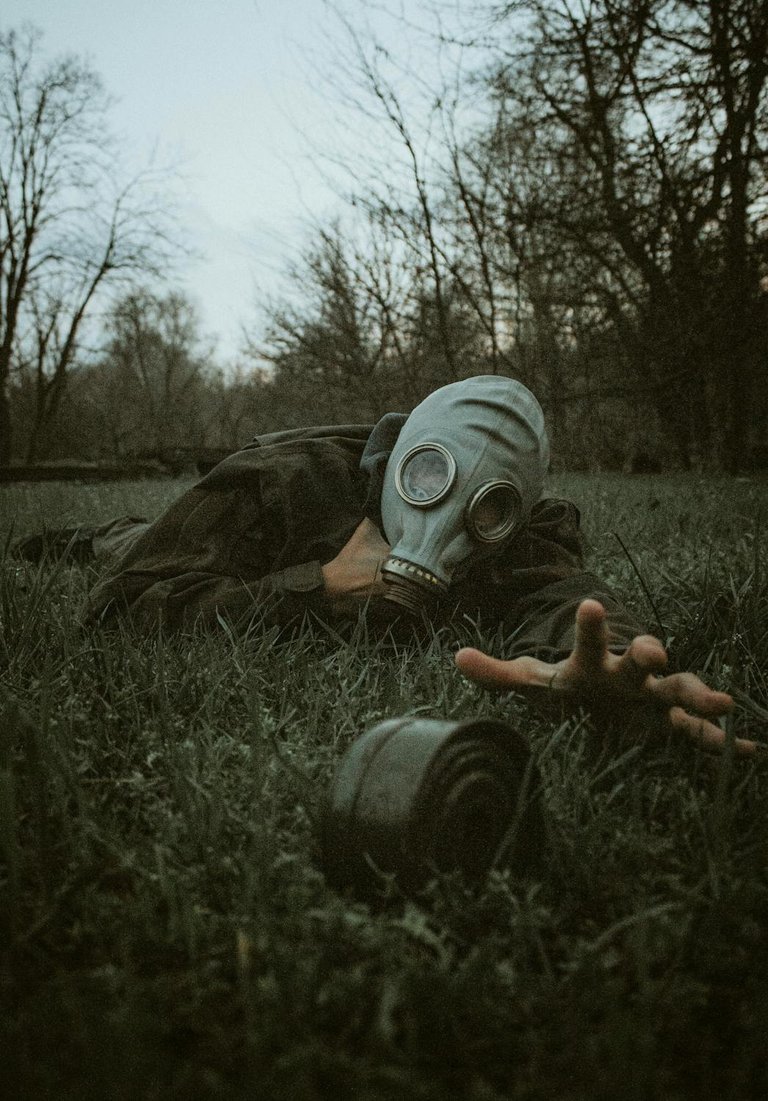We can readily attribute many lifestyle changes to the ever-changing society, as it has brought too numerous to count both welcome and devastating changes to us.

Toxic situations are environments or circumstances that are inimical to an individual and may serve as a threat to life in terms of outright or imminent danger. Such toxic situations could emanate from physical, mental, social, or psychosocial emotions, etc. Permit me to align my thoughts with the notion that there were fewer toxic situations several decades ago, or perhaps, they were largely suppressed by the society. Somewhere deep within some of us, we cherished those times when there were fewer incidences of toxic environments. Toxic environments can result from homes, relationships, workplaces, and even among colleagues.
Nobody is immune to finding himself in toxic environments. The commonest toxic environments are relationships and workplaces, and here, we find both genders, male and female, both the old and young adults. Homes are also a point of toxic environments, and we see children, especially those who are not biological or probably adopted, being victims of toxic environments. Literally, anybody can find him- or herself in toxic environments even without substantial reasons or offenses.

Many people find it difficult to accept that they are in toxic environments. You will agree with me that not many people see life beyond their immediate environments. Some people even feel toxic environments are a norm and should be endured. The first task to be free from toxic environments is to identify and accept the state of being in a toxic environment. It is essential to see how much damage has been done to the individual victim. Only with this can help be effective. It is often difficult to help someone who does not see the relevance of help. Some realizations can come from friends, family, exposures from the social media, or even strangers. Victims begin to see what has become of themselves from their jovial selves. Some victims, however, are perfect in hiding or facially dissociating themselves from expressing the toxic environments they're going through.
But then, victims are at risk of being delusional. They embrace the vest of optimism and would likely stay longer than necessary even after realizing the toxicity in their environments. This could mean them not seeking help with the belief that 'things or times would change.' Unlike several decades ago, when people were limited in their escapes, such as in marriages, people are now open to acts of separation or divorcing or wilful singleness and half parenting. The society has become more disunited and porous through the many alternatives, and soon, your position will tell if it should be so or otherwise.
Silence is a killer disease, and the globe has increased its awareness to the public on voicing out toxic environments. Social media, for one, has been very helpful in communicating the states of toxic environments, and victims are able to recognize their situations. A lot of support groups now exist. Victims are often encouraged to speak up so they can be helped.

Unfortunately, the outgoing generation endured a lot of toxic environments in the name of keeping the family or work in one piece. It is not unusual to get advice from the older generation to endure the cross of toxic environments. First, they want to keep what they hold dear protected. Secondly, and maybe more importantly, they ask what the society would say when they leave their toxic environments. It is common to hear that the victim should have endured a little more. This is especially when they do not understand the gravity of what s/he has truly undergone. A third reason is, 'Where to start from.' Truly, work is not easy to come by, especially in our environments, and neither is a partner easy to find, especially when one has been in a marriage with a few offsprings. Thus, victims tend to hold dearly their toxic environments for fear of the exterior.

loss of glamour and vibe, which could translate to a gloomy or disgruntled look.
Aggressiveness, low self esteem and pessimistic
Loss of weight and immune compromise as the victim barely feeds well.
Instability of emotions, mental state and sometimes, withdrawal symptoms.
Loss in productivity as the victim is often having depressive thoughts.
Risk of depression, anxiety, or even suicide as an extreme escape route.
Prudent counseling of victims so they can identify and accept that they are in toxic environments.
Confide in trusted friends who would go all out for you.
Support groups may come in to give ideas on how best to tackle such toxic environments.
Increase awareness and sensitization, making victims realize that speaking up is not a sign of weakness.
Sharing their testimonies with the public to encourage others not to die in silence.
Seek medical and professional care where necessary.
Employ distracting tools like meditation, exercises, and good dieting.
Avoid harmful practices such as unsafe sexual practices, alcohol consumption, and cigarette smoking.
Run when needed or change the atmosphere.
Toxic environments remain a recurring state in our society, and we must not shy away from addressing it.
Thank you for reading. I would be glad to have your thoughts and contributions.





